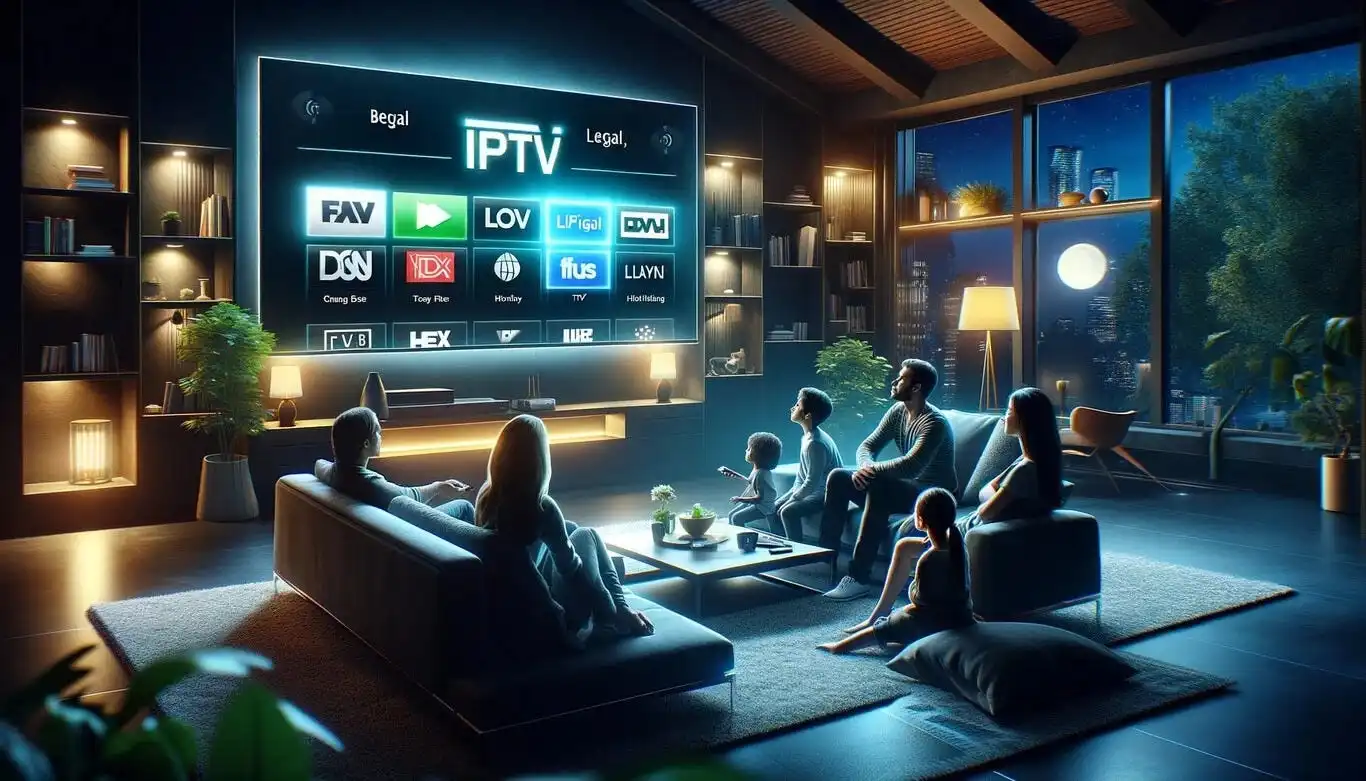[ad_1]
In the ever-evolving landscape of digital entertainment, Internet Protocol Television (IPTV) has emerged as a popular alternative to traditional cable and satellite TV. Offering a wealth of content at unbeatable prices, IPTV provides viewers with unmatched flexibility and an expansive range of programming. In this comprehensive guide, we will dive deep into the world of IPTV subscriptions, exploring what they are, how they work, the types of available services, and tips for choosing the right provider. Additionally, we will address common questions in our FAQ section to ensure you have all the information you need to make informed decisions.
What is IPTV?
IPTV, or Internet Protocol Television, refers to the delivery of television content over the Internet rather than through traditional terrestrial, satellite, or cable formats. IPTV allows users to stream media content directly to their devices, breaking free from the constraints of physical cable lines and enabling customization and convenience.
The core technology behind IPTV operates through a system of digital data packets transmitted over secure broadband networks. By utilizing these packets, IPTV services can deliver live television broadcasts, on-demand video content, and even time-shifted media, allowing users to watch their favorite programs whenever they wish.
How IPTV Works
IPTV works by converting TV signals into data packets that can be transmitted over the Internet. Here’s a simplified breakdown of the process:
- Content Acquisition: IPTV providers obtain licensed content from various sources, including broadcasters, studios, and media companies.
- Encoding: The content is then encoded into a digital format suitable for streaming, often using advanced compression technology to ensure quality and efficiency.
- Hosting: The encoded content is hosted on servers that provide it to end users.
- Streaming: Users access the content using compatible devices (smart TVs, streaming boxes, computers, or mobile devices) through a stable Internet connection.
Types of IPTV Subscriptions
There are generally three types of IPTV subscription services:
1. Live TV IPTV Services
These services offer a selection of live TV channels, often mirroring traditional cable packages. Users can watch live broadcasts in real-time and enjoy various programming categories, including news, sports, entertainment, and more.
2. Video-on-Demand (VOD)
VOD services allow users to select and watch content whenever they choose. This includes movies, series, documentaries, and more. VOD is an excellent option for viewers who prefer binge-watching or exploring specific genres at their leisure.
3. Time-Shifted TV
Time-shifted TV enables users to watch programs that aired previously. Users can catch up on episodes they missed, offering additional flexibility in managing their viewing schedules.
Benefits of IPTV Subscriptions
IPTV subscriptions come with a variety of benefits, including:
1. Cost-Effective
IPTV services are often significantly cheaper than traditional cable subscriptions, enabling users to save money without sacrificing quality or content.
2. Flexibility
With IPTV, users can access programming on various devices, including smart TVs, smartphones, tablets, and computers, ensuring they can watch their favorite shows whenever and wherever they want.
3. Extensive Content Library
IPTV providers generally offer an extensive library of channels and on-demand content across diverse categories, ensuring viewers have access to everything from international news to niche programming.
4. Multi-Device Support
Many IPTV providers offer multi-device support, allowing multiple users in a household to simultaneously watch different programs on various devices.
5. User-Friendly Interfaces
Most IPTV services come equipped with intuitive interfaces, making it easy to navigate categories, access popular shows, and find new content.
Choosing the Right IPTV Provider
Given the abundance of IPTV options available today, selecting the right provider can be daunting. Here are some essential factors to consider:
1. Content Offerings
Check the channel lineup and on-demand offerings to ensure they meet your viewing preferences. Make a list of must-have channels and compare different services to find the best fit.
2. Streaming Quality
Pay close attention to the streaming quality. A reliable IPTV provider should offer HD or 4K streaming for the best viewing experience. Reviews and user feedback can provide valuable insights into the service’s performance.
3. Device Compatibility
Examine which devices the IPTV service supports. Whether you plan to watch on a smart TV, smartphone, PC, or streaming device, compatibility is a must for a smooth experience.
4. Customer Support
Good customer support is vital. Look for providers that offer responsive service through various channels (live chat, email, phone) for troubleshooting and inquiries.
5. Trial Period
Some IPTV providers offer free trials, giving you an opportunity to test the service before committing to a subscription. Take advantage of these offers to gauge the service’s quality and usability.
Legal Considerations
When exploring IPTV subscriptions, it’s crucial to be aware of the legal landscape. Not all IPTV services are created equal, and there are legitimate concerns regarding copyright infringement and content licensing. To ensure you’re choosing a reputable provider:
- Opt for established providers that have partnerships with known content distributors.
- Avoid services that involve pirated content or that seem dubious in their offerings.
- Read reviews and customer feedback to verify the legitimacy of the service.
Conclusion
IPTV subscriptions have transformed the way we consume media, offering a modern, flexible, and cost-effective alternative to traditional TV services. With a vast array of content, multi-device compatibility, and user-friendly interfaces, it’s no wonder that IPTV is becoming the go-to choice for many viewers around the world.
As you navigate this landscape, take the time to carefully consider the type of service that best fits your entertainment needs. Investigate different providers, explore their offerings, and consider legal aspects to ensure a safe and enjoyable viewing experience. With the right IPTV subscription, you’ll unlock a world of entertainment possibilities!
FAQs
1. What is the difference between IPTV and traditional TV?
IPTV delivers content via the Internet, allowing streaming on various devices, while traditional TV relies on cable or satellite signals transmitted through physical lines.
2. Do I need a special device to use IPTV?
No, most IPTV services are compatible with a range of devices, including smart TVs, streaming devices (like Roku), smartphones, tablets, and computers.
3. Is IPTV legal?
Yes, IPTV can be legal or illegal, depending on the service provider. It’s essential to choose providers that offer licensed, legitimate content.
4. Can I watch IPTV on multiple devices simultaneously?
Many IPTV services allow multiple devices to stream content at the same time, but check with your provider for specific policies.
5. What internet speed do I need for IPTV?
A stable internet connection of at least 10 Mbps is generally recommended for streaming IPTV content in HD. For 4K streaming, higher speeds may be necessary.
6. How do I set up IPTV?
To set up IPTV, subscribe to a provider, download or install their app on your desired device, log in using your credentials, and start watching!
[ad_2]



